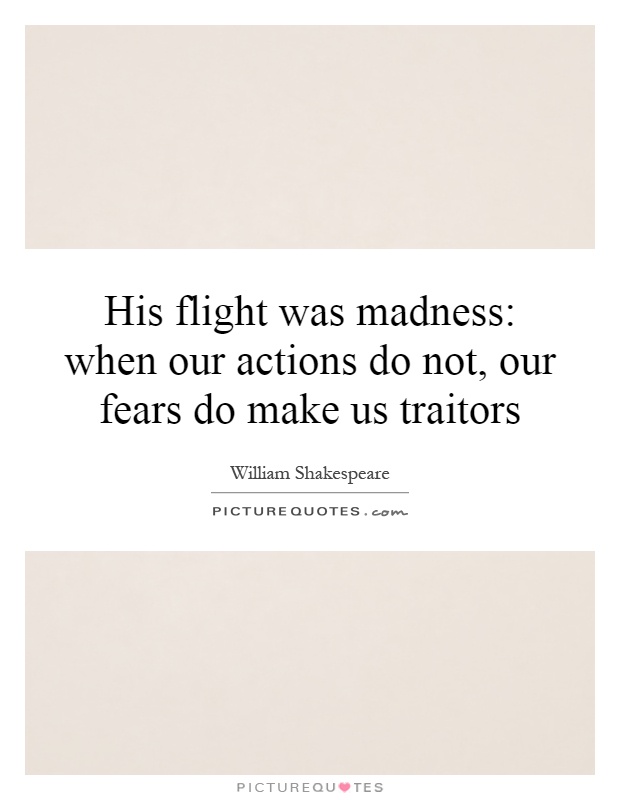His flight was madness: when our actions do not, our fears do make us traitors

His flight was madness: when our actions do not, our fears do make us traitors
In William Shakespeare's play Macbeth, the character of Macbeth experiences a profound internal struggle between his ambition and his fears. The quote "His flight was madness: when our actions do not, our fears do make us traitors" is spoken by Lady Macbeth in Act 3, Scene 2, as she reflects on Macbeth's increasingly erratic behavior.Macbeth's flight into madness is a direct result of his fears consuming him. His initial ambition to become king is fueled by the prophecies of the witches and the manipulation of Lady Macbeth. However, as he begins to carry out the violent acts necessary to achieve his goal, his fears of being caught and losing everything start to take over. This internal conflict leads Macbeth to make increasingly reckless decisions, ultimately leading to his downfall.
Lady Macbeth's observation that "our fears do make us traitors" is a poignant reminder of the power of fear to corrupt our actions. In Macbeth's case, his fear of losing power and being exposed as a murderer drives him to commit even more heinous acts in an attempt to secure his position. This descent into madness is a tragic example of how unchecked ambition and fear can lead to self-destruction.
The theme of ambition and its consequences is a central theme in many of Shakespeare's plays, including Macbeth. The quote "His flight was madness: when our actions do not, our fears do make us traitors" serves as a warning about the dangers of allowing fear to dictate our actions. In Macbeth's case, his fears ultimately lead to his betrayal of his own morals and values, as well as the betrayal of those closest to him.
Overall, Shakespeare's exploration of the relationship between ambition, fear, and betrayal in Macbeth serves as a powerful reminder of the destructive power of unchecked ambition and the importance of staying true to one's principles. The quote "His flight was madness: when our actions do not, our fears do make us traitors" encapsulates the tragic arc of Macbeth's character and serves as a cautionary tale for audiences about the consequences of succumbing to fear and ambition.












 Friendship Quotes
Friendship Quotes Love Quotes
Love Quotes Life Quotes
Life Quotes Funny Quotes
Funny Quotes Motivational Quotes
Motivational Quotes Inspirational Quotes
Inspirational Quotes